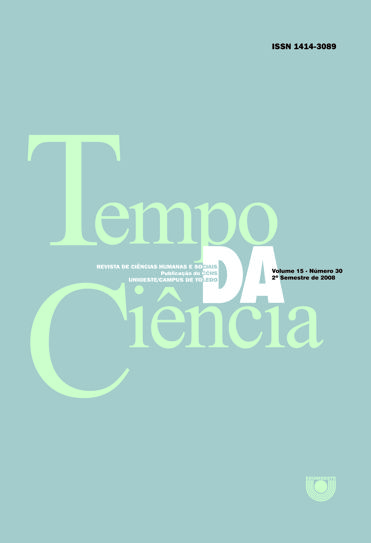A Idéia de Progresso em Kant
DOI:
https://doi.org/10.48075/rtc.v15i30.1985Keywords:
Kant, história, razão, progressoAbstract
The primordial intention of this article is to make an approach where the notion of progress in Kant is explained. The theoretical fundament for the accomplishment of this objective will be found, above all, in two works of Kant: “Idea of a Universal History under a Cosmopolitan Point of View” and “The Conflict of the Faculties”. On the first one, one estimates that it is in the history that the human species gradually fulfills its own goals. In this way, the progress is seen and understood under the teleology of the nature. On the second book, influenced by a contemporary event, the French Revolution, Kant presents a conception of progress totally new, instigating and reformulated, coming into the conclusion that the horizon of the teleology of the nature is not enough to think itself about the meaning of thehistory.
Downloads
Published
How to Cite
Issue
Section
License
Aviso de Direito Autoral Creative Commons
Política para Periódicos de Acesso Livre
Autores que publicam nesta revista concordam com os seguintes termos:
1. Autores mantém os direitos autorais e concedem à revista o direito de primeira publicação, com o trabalho simultaneamente licenciado sob a Licença Creative Commons Attribution que permite o compartilhamento do trabalho com reconhecimento da autoria e publicação inicial nesta revista.
2. Autores têm autorização para assumir contratos adicionais separadamente, para distribuição não-exclusiva da versão do trabalho publicada nesta revista (ex.: publicar em repositório institucional ou como capítulo de livro), com reconhecimento de autoria e publicação inicial nesta revista.
3. Autores têm permissão e são estimulados a publicar e distribuir seu trabalho online (ex.: em repositórios institucionais ou na sua página pessoal) a qualquer ponto antes ou durante o processo editorial, já que isso pode gerar alterações produtivas, bem como aumentar o impacto e a citação do trabalho publicado (Veja O Efeito do Acesso Livre).
Licença Creative Commons
Esta obra está licenciada com uma Licença Creative Commons Atribuição-NãoComercial-CompartilhaIgual 4.0 Internacional, o que permite compartilhar, copiar, distribuir, exibir, reproduzir, a totalidade ou partes desde que não tenha objetivo comercial e sejam citados os autores e a fonte.


